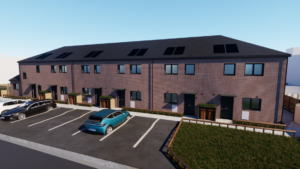Permitted development rules ‘exacerbating’ housing crisis
 Permitted development rules allowing offices to be converted into housing without planning permission are exacerbating the nation’s housing affordability crisis and should be scrapped, according to the Local Government Association.
Permitted development rules allowing offices to be converted into housing without planning permission are exacerbating the nation’s housing affordability crisis and should be scrapped, according to the Local Government Association.
Latest figures show that since 2015, a total of 42,130 housing units in England have been converted from offices to flats without having to go through the planning system. As a result, they included no affordable housing and did not offer any investment into infrastructure such as roads, schools and health services.
The LGA estimates this has led to the potential loss of 10,500 affordable homes in the past three years.
It comes as its survey of councils in England found concerns about the rules around permitted development, revealing around nine out of 10 councils were concerned about the design quality and the appropriateness of the location of housing with almost six out of 10 councils surveyed concerned about safety.
It also found that two-thirds thought that both contributions by developers to affordable housing and contributions for other infrastructure through section 106 agreements had reduced. A similar proportion (61%) thought that demands on local infrastructure and services had increased.
Martin Tett, LGA housing spokesman, said: ‘Planning is not a barrier to house-building, with councils approving nine in 10 planning applications. It is vital that councils and local communities have a voice in the planning process.
‘Councils, which are answerable to their residents, must be given back their ability to oversee all local developments to ensure they are good quality and help build prosperous places,’ he added.
Alongside scrapping the existing rules, the LGA is also urging the government to drop proposed plans to extend them to allow upwards extensions to be built without planning permission and allow the demolition of existing commercial buildings for new homes without planning consent.
Responding to the survey, an MHCLG spokesperson told Planning News: ‘We are making the housing market work by reforming planning rules so we can build more properties that suit a range of needs.
‘Permitted development rules provide flexibility, reduce bureaucracy and make the most effective use of existing buildings.’















